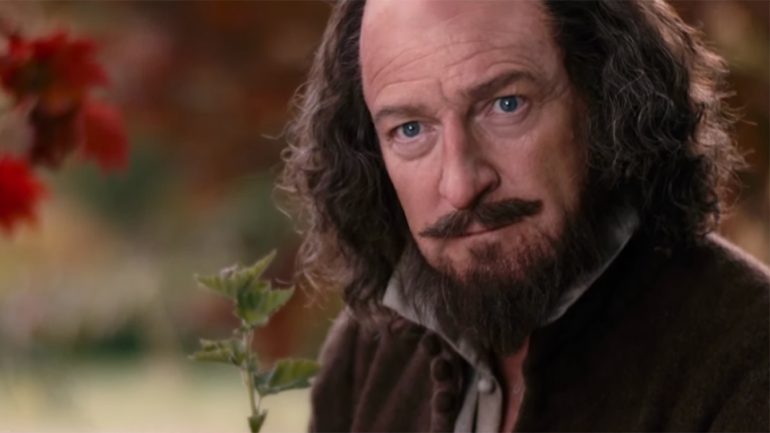With the upcoming Sony Classics theatrical release of “All is True,” which Branagh produced and directed as well as shared screenwriting credits with Ben Elton, he gets to play Shakespeare in all of the Bard’s multi-faceted and complex rendering. And, let’s be honest, Branagh is convincing as a middle-aged Shakespeare in the final years of his life. He was just 52 when he died in 1616.
“I’ve never let the truth get in the way of a good story,” Branagh as Shakespeare says, staring directly at the camera. However, as we learn, “If you’re honest with yourself and whatever you write, all is true.”
“All is True” is set after Shakespeare returns a distraught man to Stratford following the devastating 1613 fire that destroys the Globe Theatre during the first production of his “All is True” (“Life of Henry VIII”). At home with his family, wife Anne (Academy Award winner Judi Dench) and daughters Judith (Kathryn Wilder) and Susanna (Lydia Wilson), Branagh’s Shakespeare attempts to ease his grief, both from the fire and the death at age 11 of his only son, Hamnet (Sam Ellis), by planting a memorial garden.
Through out the 101-minute film, which I saw a sneak preview of last Sunday in Washington, D.C., we see the many sides of Shakespeare as a human being: multi-faceted, complex, kind. He was an individual with great creative strength – after all he was a great and prolific writer – but we see him as a very flawed individual, too, as he deals with reconciliation and mortality. For all his proclivity – 39 plays, 154 sonnets, two long narrative poems and a few other verses – and for all of his lofty and noble wisdom in his writing, we witness Shakespeare’s struggles as a husband and father at home, trying to apply the same insights that made his writing so prolific in his own life.
As an aside, imagine the opportunity to play opposite those whom you respect. There’s the potential to be intimidating. Yet, Branagh, along with Dench and Academy Award nominee Ian McKellen, show us how acting works through nuance and with just the right tone of voice. “All is True” is a Shakespearean labor of love – filled with great dialogue and conversation between Branagh and Dench as well as the all-to-brief scene featuring Branagh and McKellen as the Earl of Southampton – and we get to see and enjoy arguably the greatest Shakespearean actors of our lifetime all in one film. Each shows us how acting works.
“All is True” is an meant to be a gentle elegy about the end of Shakespeare’s life. Along with the early and buoyant years that “Shakespeare in Love” showed us, “All is True” serves as a worthy bookend. By the conclusion of the film, we realize that Shakespeare truly has lived a remarkable life.

No comments:
Post a Comment